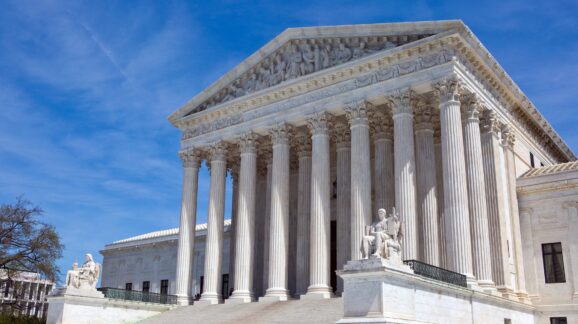CEI asks Supreme Court to overturn Chevron deference to regulators

Photo Credit: Getty
Earlier today, the Competitive Enterprise Institute filed an amicus brief at the United States Supreme Court asking the Court to overturn Chevron. Our brief focuses on four primary reasons why the Court should overturn Chevron.
First, the Chevron decision is not originalist. Chevron did not come from Congress. In fact, it is directly contrary to Congress’s express statutory command that courts “shall decide all relevant questions of law, interpret constitutional and statutory provisions” (emphasis added).
Congress was clear when it wrote that language into law that “‘interpretative’ rules—as merely interpretations of statutory provisions—are subject to plenary judicial review” which means no deference is given, “whereas ‘substantive’ rules involve a maximum of administrative discretion.”
Second, Chevron puts a thumb on the scale of justice in favor of one party. Chevron encourages agencies—not neutral and impartial judges—to interpret the law, and those agencies are afflicted with institutional self-interest. A judge with a similar pecuniary interest would not be allowed to issue a binding interpretation of law. The notion that a party can neutrally and impartially serve as a judge in its own case is inherently implausible. The executive is biased in favor of its own power, and cannot be considered neutral.
Third, Chevron encourages instability in the law. Chevron allows changes every few years without the involvement of Congress and thereby increases uncertainty in the path of the law. This encourages agencies to generate rules of minimal clarity that judicial decisions will struggle to illuminate. This maximizes deference to agencies and minimizes legal certainty that our Constitution values.
Lastly, Chevron undermines the separation of powers by allowing the executive to seize powers that Congress never authorized. This case presents a perfect example: here, the executive branch seized the power of the purse. The government claims that when it encounters statutory silence, it can force businesses to fund private law enforcement officers.
The agency’s rule avoided the political accountability that, under our system, is attached to the congressional appropriation of agency funds. If Congress had appropriated money for the agency to hire fishing monitors, a future Congress would have the option of defunding the program. But the agency sidestepped the congressional accountability that our system of self-government requires.
For these four reasons, we have asked the Supreme Court to overturn Chevron and return to a neutral and unbiased interpretation of the law by judges.